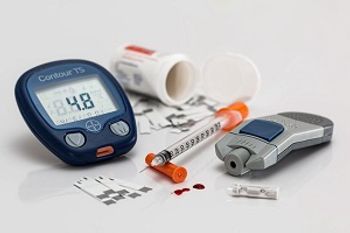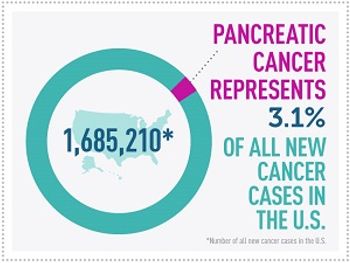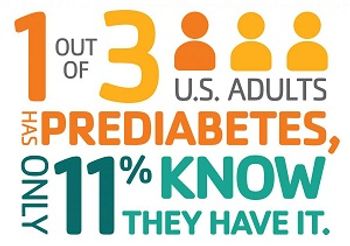
Diabetes
Latest News

Latest Videos

CME Content
More News

A study published in JAMA analyzed 155 health conditions, 36 age and sex groups, and 6 types of care to determine the impact of population growth, population aging, disease prevalence or incidence, service utilizations, and service price and intensity on healthcare spending increases in the United States from 1996 to 2013.

The Gallup-Sharecare Wellbeing Index released its estimate of the cost of diabetes for employers on World Diabetes Day.

The EMPA-REG trial has been a big step forward for clinicians being able to put patients with type 2 diabetes onto treatment that also reduces cardiovascular disease risk, which is the primary cause of death in these patients, explained Eliot A. Brinton, MD, FAHA, FNLA, president of the Utah Lipid Center.

Every week, The American Journal of Managed Care® recaps the top managed care news of the week, and you can now listen to it on our podcast, Managed Care Cast.


This week, the top managed care stories included a vote in Maine to expand Medicaid and other election day 2017 results; CMS issued final rules for the DIabetes Prevention Program; and a report from the American Society of Clinical Oncology highlighted the link between alcohol consumption and cancer.

Mind-body practices have increased in popularity,but the challenge of variation between teachers and classes has been a barrier to payer reimbursement.

Rising rates of diabetes and obesity have been cited in the fact that pancreatic cancer is expected to be the second-leading cause of cancer death by 2020.

CDC released a report showing a more than 17% increase in drug overdose deaths last year; Gail K. Boudreaux will step in as new Anthem CEO; and the first glucose-monitoring system that doesn’t require a blood sample will hopefully be introduced by the end of 2018.

CMS officials addressed a key concern that groups offering the Diabetes Prevention Program would bear too much financial risk, but they were unmoved on requests to let beneficiaries try the program more than once in a lifetime.

With 30% to 40% of people in the workforce at risk for prediabetes, it is important for employers to embrace diabetes prevention in the workplace, said Paul Chew, MD, chief medical officer of Omada Health.

While current, prior, and change in the Kansas City Cardiomyopathy Questionnaire score were all significnatly associated with lower risk of mortality and heart failure hospitalization in isolation, when the current score was included with either prior or change score, only the current score was significantly associated with lower risk for all-cause mortality.

Findings from the ACTION study were presented during Obesity Week.

At a session during the National Association of Managed Care Physicians Fall Managed Care Forum 2017, speakers discussed how new approaches to encouraging medication adherence can help improve outcomes in patients with chronic diseases.

Authors from a working group of the American Diabetes Association and the European Association for the Study of Diabetes made recommendations that could lead to broader use of technology. CGM systems are poised to make advances that could make them more useful to the larger group of patients with type 2 diabetes.

While Congress debates the fate of the Affordable Care Act, healthcare transformation continues, as seen in an update released this week at Horizon Blue Cross Blue Shield of New Jersey.

While Congress debates the fate of the Affordable Care Act, healthcare transformation continues, as seen in an update released this week at Horizon Blue Cross Blue Shield of New Jersey.

The use of statewide data infrastructure is effective at identifying criteria for diabetes outreach and management at the whole-population level.

The authors find that sleep in teens fell after 2009, as smartphone use escalated. Lack of sleep has been linked to insulin resistance.

Every week, The American Journal of Managed Care® recaps the top managed care news of the week, and you can now listen to it on our podcast, Managed Care Cast.

The FDA commissioner said regulators would keep special watch over 10 manufacturers who are the sole source of key products. If necessary, they will allow products to be imported from overseas.

This week, the top managed care news included the bipartisan deal to stabilize the Affordable Care Act's insurance markets; coverage from the Academy of Managed Care Pharmacy 2017 Nexus; and a plan to reduce clinician burnout at the computer.

Despite its clinical success the Diabetes Prevention Program has only reached a fraction of those who need it. That could change once Medicare starts paying for the program next year.

The injectible drug is expected to compete with Eli Lilly's Trulicity after a head-to-head trial showed superior results on glycemic control and weight loss.

Aimee Tharaldson, PharmD, of Express Scripts kicked off the Academy of Managed Care Pharmacy (AMCP) 2017 Nexus, held October 16-19 in Dallas, Texas, with a presentation on the pipeline of specialty pharmaceuticals in development.
















